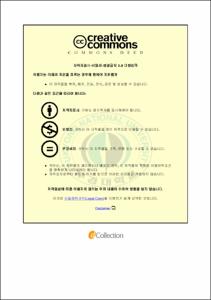스쿼트 운동 시 발의 압력에 미치는 영향
- Abstract
- This study targets 10 male students in their 20s of Department of Physical Education and 10 male students in their 20s of other departments of P University located in B City. Skilled members have been selected out of those who have had regular weight training experiences for last 3 years.
This study is purposed to propose indices in order to achieve goals such as preventing one-sided movement of balance, preventing injuries to joints of legs, improving muscular strength of legs, and maximizing sporting achievement. In terms of methodology, this study has compared foot pressure distribution during squat exercise.
As a result of analysis on impact of squat exercise on foot pressure, conclusions have been obtained as shown below.
1. After analyzing foot pressure distribution of front feet of skilled members and unskilled members during squat exercise, it has been noticed that left foot of them showed no difference of foot pressure distribution. However, foot pressure of right foot of skilled members was 0.10㎏f/s, and that of unskilled members was 0.05㎏f/s, exhibiting significant difference (p< .01).
2. As a result of analysis on foot pressure distribution of back feet of skilled members and unskilled members during squat exercise, it was found out that foot pressure of left foot of skilled members was 0.13㎏f/s, and that of unskilled members was 0.28㎏f/s, showing significant difference (p< .01).
While foot pressure distribution of right foot of skilled members was 0.11㎏f/s, that of unskilled members was 0.23㎏f/s, showcasing significant difference (p< .01).
3. After analyzing foot pressure ratio of front feet of skilled members and unskilled members during squat exercise, it was found out that foot pressure ratio of left foot of skilled members was 49.97%, and that of unskilled members was 32.82%, showing significant difference (p< .01).
While foot pressure ratio of right foot of skilled members was 46.65%, that of unskilled members was 28.19%, presenting significant difference (p< .01).
4. As a result of analysis on foot pressure ratio of back feet of skilled members and unskilled members during squat exercise, it was found out that foot pressure ratio of left foot of skilled members was 50.03%, and that of unskilled members was 67.18%, showing significant difference (p< .01).
While foot pressure ratio of right foot of skilled members was 53.35%, that of unskilled members was 71.90%, exhibiting significant difference (p< .01).
- Issued Date
- 2012
- Awarded Date
- 2012. 8
- Type
- Dissertation
- Publisher
- 부경대학교
- Affiliation
- 부경대학교 교육대학원
- Department
- 교육대학원 체육교육전공
- Advisor
- 김용재
- Table Of Contents
- Ⅰ. 서 론 1
1. 연구의 필요성 1
2. 연구의 목적 4
3. 연구의 문제 4
4. 연구의 제한점 5
5. 용어의 정의 5
Ⅱ. 이론적 배경 8
1. 스쿼트 운동과 특성 8
2. 스쿼트 운동과 족저압력 9
3. 스쿼트 운동과 압력비율 10
Ⅲ. 연구방법 12
1. 연구대상 12
2. 측정기구 13
3. 측정항목 14
4. 측정방법 14
5. 실험절차 16
6. 통계처리방법 17
Ⅳ. 연구결과 18
1. 스쿼트 운동 시 전족의 압력분포 18
2. 스쿼트 운동 시 후족의 압력분포 19
3. 스쿼트 운동 시 전체 압력에서 전족의 압력비율 21
4. 스쿼트 운동 시 전체 압력에서 후족의 압력비율 22
Ⅴ. 논의 24
1. 스쿼트 운동 시 전족의 압력분포 24
2. 스쿼트 운동 시 후족의 압력분포 25
3. 스쿼트 운동 시 전체 압력에서 전족의 압력비율 26
4. 스쿼트 운동 시 전체 압력에서 후족의 압력비율 27
Ⅵ. 결론 28
참고문헌 30
- Degree
- Master
- Files in This Item:
-
-
Download
 스쿼트 운동 시 발의 압력에 미치는 영향.pdf
기타 데이터 / 1.63 MB / Adobe PDF
스쿼트 운동 시 발의 압력에 미치는 영향.pdf
기타 데이터 / 1.63 MB / Adobe PDF
-
Items in Repository are protected by copyright, with all rights reserved, unless otherwise indicated.